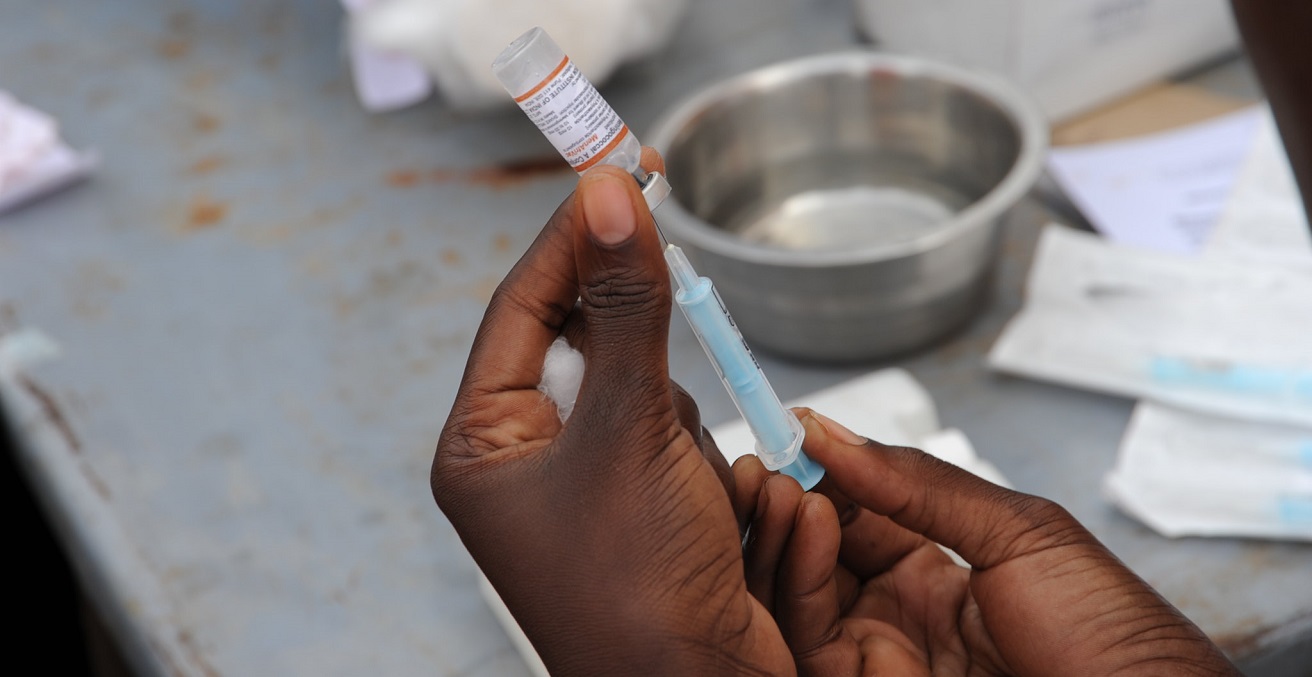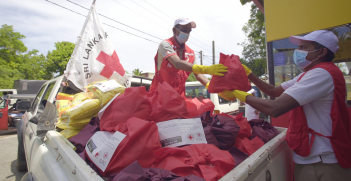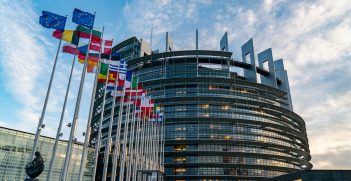COVAX Initiative: The Solution for Equitable Distribution of COVID-19 Vaccines

With multiple COVID-19 vaccines in development, the role of the COVAX initiative is ensuring fair, global distribution. If successful, this initiative will reinforce the importance of international cohesion, pushing the world forward into a new era of global solidarity.
Eleven months after the first reported case of COVID-19, the world is still scrambling to find a solution that brings an end to this crisis. We know that the solution can only be a vaccine. However, historically, the pursuit of life-saving public health interventions has disregarded vulnerable populations globally, especially those in low- and middle-income countries (LMICs).
Even the successful distribution of the smallpox vaccine prioritised the global North, with the virus first eliminated in North America and Europe in 1952 and 1953, respectively. Even when the World Health Organization (WHO) initiated a plan to eradicate smallpox in 1959, the dearth of financial resources and health professionals prevented an effective response in the global South. The virus was eliminated last in Africa – only in 1977, 25 years after its elimination in North America. This example is instructive of what we should expect if the distribution of COVID-19 vaccines is not managed equitably.
Nationalism and protectionism have reared their heads again during this pandemic. In an attempt to save their populations first, countries are competing towards the finish line, with some unethically putting other nations at risk. Early in April, the US confiscated 200,000 masks ordered by the Berlin police force in Bangkok, Thailand, and redirected them to the US. This act of piracy diverts resources away from countries that need them and defies existing laws.
This nationalistic move also compromises the purported liberty of private companies, an ideal the Western world prides itself on. Biotechnology companies in Germany were discouraged from accepting foreign investment to ensure that the production of the vaccine happened on German soil. The same day that biotechnology company CureVac was planning an Initial Public Offering in New York, Berlin said it would buy 23 percent of its shares. Germany made this move despite Chancellor Angela Merkel’s statement that the vaccine must be available for all countries.
This contradictory statement creates confusion as to the motive of Germany, and more broadly, the Western world, when it comes to COVID-19 vaccine distribution. It is not clear whether statements committing to global equity are genuine, or if they will be adhered to after the discovery of a viable vaccine. As WHO Director-General Dr Tedros Adhanom emphasised, “supply nationalism exacerbated the pandemic and contributed to the total failure of the global supply chain.”
The COVAX initiative, co-led by GAVI – the Vaccine Alliance, the WHO, and the Coalition for Epidemic Preparedness Innovations, could be the world’s response to this urgent need for international solidarity if it is applied with ethics and equity. Its goal is to provide a safety net for the 186 member countries by supporting the production of vaccines and ensuring an equitable distribution after its discovery.
COVAX has two major parts – the COVAX Facility, which serves as a purchasing pool for high income countries, and the Advance Market Commitment, which is a fundraising initiative for LMICs. COVAX aspires to ensure the 94 fully self-financing countries, as well as the 92 countries that need assistance, will receive a vaccine supply that will cover 20 percent of their populations, reaching two billion doses by the end of 2021. To achieve this mission, COVAX will need to raise an additional $5 billion to complement the $2 billion raised so far.
COVAX is the first initiative of its kind that provides a mechanism for equitable distribution of these vaccines even before their discovery. However, there are various challenges that present an obstacle to the successful implementation of its mission. Firstly, some member countries have signed individual, parallel contracts with private companies to secure vaccine supplies. This will take away from the manufacturing capacity of companies in the COVAX Facility’s portfolio. Secondly, with major players such as the US and Russia refusing to join COVAX, it will be difficult to reach the $5 billion needed to achieve COVAX’s aim. A third obstacle to COVAX’s mission of equitable vaccine distribution is vaccine hesitancy and weak delivery systems in countries across the globe.
COVID-19 vaccines will not end the spread of the disease if they do not reach all communities, especially those most at risk – healthcare professionals, the elderly, and the immunocompromised. In preparation for the equitable allocation of the vaccine, countries need to come together to determine vaccine prioritisation and distribution schemes. Campaigns for the vaccine guided by consistent, transparent information about the vaccine should be implemented to eliminate vaccine hesitancy. Moreover, each country should strengthen its cold chain distribution and logistical capacity to facilitate the last mile delivery of the vaccine. This work needs to start now to preempt any excuses to bypass and prevent the distribution of the vaccines in some unprepared countries. Moreover, countries need to be ready now, as recent successful developments with the Moderna and Pfizer vaccines show a nearly 95 percent effectiveness against the coronavirus, and the Oxford vaccine showing a potential 90 percent effectiveness after changing the dosage.
The strengthening of delivery systems needs to be coupled with efforts to build research capacity in LMICs. This pandemic has shown this is the only way to ensure that LMICs can contribute to the global production of life-saving medical interventions, keeping in mind that it is the lack of biomedical research capacity that has prevented them from contributing to the development of a COVID-19 vaccine and many other drugs in the past. Given the world faces a shortage of medical products, LMICs should be able to contribute to the global efforts.
While this is not a feasible goal for the current health crisis, reform must be implemented now for the next health threat. Governments need to invest in research training opportunities by leveraging partnerships that promote sustainable research capacity building. While Africa has example institutions such as the Institut Pasteur de Dakar in Senegal that is conducting trailblazing biomedical research on the continent, there must be substantially more institutions like this one. This momentum should be built upon to create opportunities for research, entrepreneurship, and innovative investment while challenging the brain drain phenomenon. This ultimately will help create African solutions that can contribute to global health and wellness, especially for the most vulnerable.
Twenty years ago, a global movement was established to reduce unnecessary deaths from the HIV/AIDS epidemic. Global solidarity was manifested through the Global Fund, a public-private partnership that required countries to submit project proposals to apply for and be accepted to receive the funding. Today, there is an initiative to equitably and systematically distribute the COVID-19 vaccine to people at risk worldwide, without obliging countries to spend time conceiving a proposal for approval. If the COVAX initiative successfully achieves its mission of equitable distribution, we will enter a new era of global health solidarity, with this initiative potentially serving as a benchmark for program development against future health threats.
Professor Agnes Binagwaho is the Vice Chancellor of the University of Global Health Equity, a global university in the rural north of Rwanda focused on changing the way health care is delivered around the world by training the next generation of global health professionals to provide more equitable, quality health services for all. She is a Rwandan pediatrician who has served the Rwandan health sector in various high-level government positions, first as the Executive Secretary of Rwanda’s National AIDS Control Commission, then as Permanent Secretary of the Ministry of Health, and then for five years as Minister of Health.
Kedest Mathewos is a research associate to Agnes Binagwaho, Vice Chancellor of the University of Global Health Equity. Prior to joining UGHE, Kedest worked with the Institute for Healthcare Improvement and completed various public health and economics research projects. Kedest holds a Bachelor of Arts in Global Health and a Bachelor of Science in Economics from Duke University. She is passionate about the international development field, with a particular interest in health systems strengthening.
This article is published under a Creative Commons Licence and may be republished with attribution.





